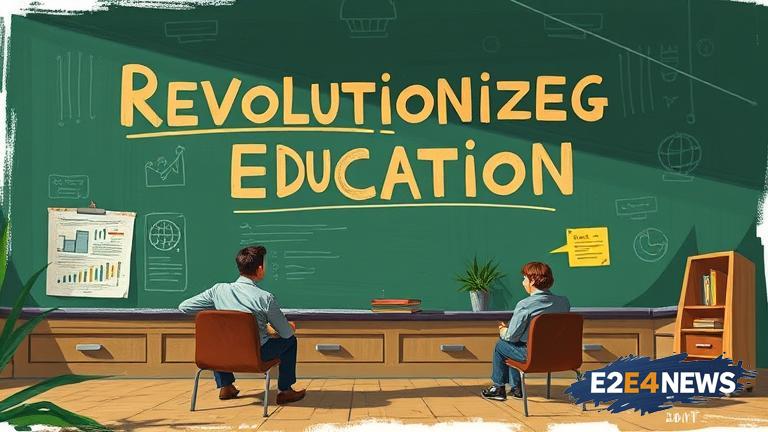The world of academia is undergoing a significant transformation, driven by the need to adapt to the changing demands of the modern era. The traditional academic system, which has been in place for centuries, is facing a crisis of relevance, prompting a growing number of educators, policymakers, and stakeholders to rethink and reform the way we approach education. At the heart of this crisis is the realization that the current system is no longer equipped to prepare students for the complexities and challenges of the 21st century. The emphasis on rote learning, standardized testing, and narrow specialization has led to a lack of creativity, critical thinking, and problem-solving skills among graduates. Furthermore, the rising cost of higher education, coupled with the increasing burden of student debt, has made it difficult for many students to access quality education. In response to these challenges, there is a growing movement to rethink academia and create a more inclusive, flexible, and responsive system. This involves a shift towards interdisciplinary learning, experiential education, and competency-based progression. It also requires a greater emphasis on soft skills, such as communication, collaboration, and emotional intelligence, which are essential for success in the modern workplace. Moreover, the integration of technology, artificial intelligence, and data analytics is transforming the way we teach and learn, enabling more personalized and adaptive learning experiences. However, this transformation also raises important questions about the role of educators, the value of traditional degrees, and the impact of automation on the job market. To address these challenges, educators and policymakers must work together to create a more agile and responsive system, one that is capable of adapting to the changing needs of students, employers, and society as a whole. This will require a fundamental shift in the way we think about education, from a narrow focus on academic achievement to a broader emphasis on lifelong learning, personal growth, and social mobility. Ultimately, the goal of rethinking academia is to create a more equitable, sustainable, and effective system, one that prepares students for success in the 21st century and beyond. The benefits of such a system would be numerous, including improved student outcomes, increased social mobility, and a more skilled and adaptable workforce. However, achieving this vision will require significant investment, innovation, and collaboration, as well as a willingness to challenge traditional assumptions and practices. In conclusion, rethinking academia is a complex and multifaceted challenge, one that requires a fundamental transformation of the way we approach education. By working together to create a more inclusive, flexible, and responsive system, we can ensure that education remains a powerful tool for personal and social transformation, and that it continues to play a vital role in shaping the future of our societies. The need for reform is urgent, and the stakes are high, but the potential rewards are significant, and the benefits would be felt for generations to come. As we move forward, it is essential that we prioritize the needs of students, employers, and society, and that we work together to create a more agile, responsive, and effective system. By doing so, we can ensure that education remains a driving force for progress, innovation, and social mobility, and that it continues to play a vital role in shaping the future of our world. The time for change is now, and the future of education depends on our ability to rethink and reform the traditional academic system. We must be bold, innovative, and collaborative in our approach, and we must be willing to challenge traditional assumptions and practices. Only by working together can we create a more equitable, sustainable, and effective system, one that prepares students for success in the 21st century and beyond.
